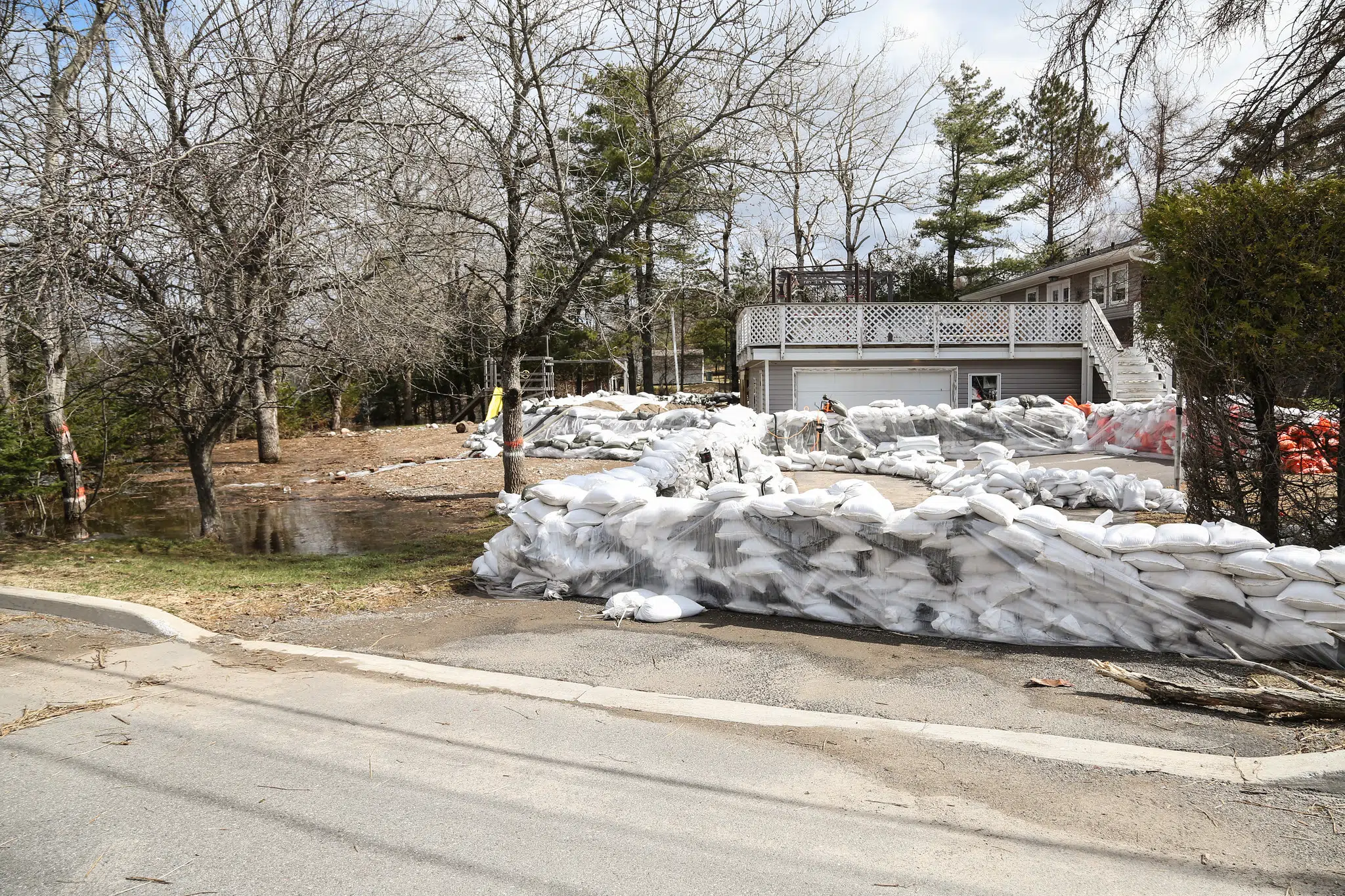
Water levels have receded, and many are now in recovery mode (Government of New Brunswick)
Residents undertaking recovery activities following major flooding will receive help from the provincial government.
As of Wednesday, the province will cover landfill tipping fees for people disposing of flood debris, such as sandbags or furniture.
Ryan Donaghy with the Department of Environment and Local Government says they will also be waiving building permit fees for those recovering from extensive damage.
“To that end, folks are going to be required to get a building permit for repairs to structures that were impacted by flooding, as well as those taking the necessary steps to flood proof their dwelling in the coming days, weeks and months,” he said during a New Brunswick EMO update.
May 1: River Watch update
Posted by Government of New Brunswick on Wednesday, May 1, 2019
Fees are also being waived for Watercourse and Wetland Alteration permits for those living close to a wetland area.
As for a special roadside pickup for those who have been isolated, Donaghy says it’s too early to finalize the details, but it will take place as soon as possible.
Once water recedes sufficiently, residents for affected local service districts will be provided with instructions on roadside debris pickup. Flood debris includes appliances, furniture, carpeting, insulation, paper products, and construction debris.
Residents can also check with their local government for details on pickups within city boundaries.
The NB EMO is asking residents with wells that were impacted by floodwaters to refrain from using their well water until it is properly tested.
Starting next Monday, free bacterial testing for well water will be available from the province.
If the water has an odour or discolouration, or if residents believe it has been affected by chemicals, it should not be used for any purpose, even if it has been boiled.
Chief Medical Officer Dr. Jennifer Russell explains water samples cannot be taken until the well has been flushed with chlorine.
“Its important that the timelines are followed because chlorinating or sampling a well too soon can cause errors in results that may delay restoring the use of your well,” she said.
A full list of instructions on how to flush and test your well water, as well as locations for testing kits, can be found on the EMO website.
As water levels continue to recede, more roads across the province are starting to reopen.
Ahmed Dassouki with the Department of Transportation and Infrastructure says they 147 roads were impacted by flooding this year, resulting in 68 roads closures.
As of Wednesday morning, 79 roads have opened so far.
“We still have a lot of roads underwater. People should still obey the barricade and drive according to the signage and enforcement. As water levels continue to drop over the next few days, we anticipate that more road inspections and openings will happen.”
The Trans Canada Highway between Oromocto and Riverglade reopened on Wednesday afternoon, but Dassouki says speeds have been reduced to 70 km/h as crews continue to inspect the area.
Bill Lawlor with Canadian Red Cross says recovery efforts are still underway, with three locations handing out flood clean-up kits.
He says they have also raised $290,000 for a flood relief appeal.
Financial relief from the province hasn’t been detailed yet, as public safety is still it’s top priority.
Residents affected by flooding are asked to report damage by calling 1-888-298-8555 or by registering online at https://t.co/59XE9pLDhV. pic.twitter.com/WYQhq3Mjx4
— Government of NB (@Gov_NB) May 1, 2019
The province says those with damage to their property can still register and report it to the province, either by phone or online.






